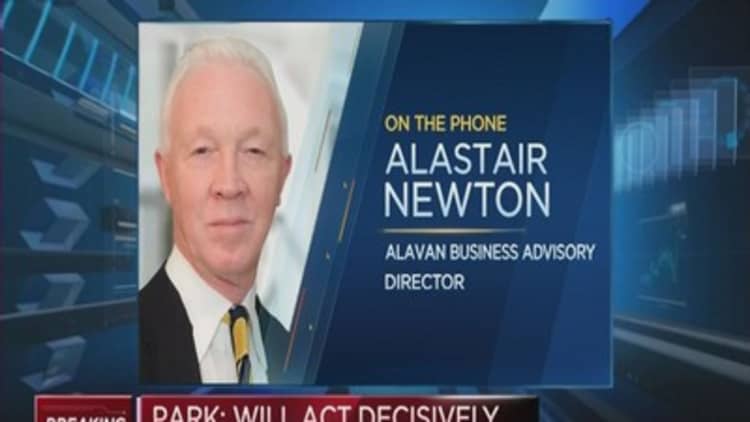


Pyongyang has preened itself as the proud owner of a "hydrogen bomb of justice" but while the pariah country succeeded in elevating geopolitical risks, historical data shows it's unlikely to spook markets.
North Korea, one of the world's most isolated economies, claimed that it had successfully tested a miniature hydrogen bomb on Wednesday, sparking the ire of neighboring South Korea, China and Japan and inviting threats of further sanctions.
Initially reported as an earthquake, it was North Korea's fourth nuclear test since 2006 as leader Kim Jong Un consolidates his leadership and seeks to show off the country's technological prowess. It was also the first reported instance of a hydrogen device. Previous tests—in 2013, 2006 and 2009—centered on plutonium and uranium bombs, which are considerably less powerful.
While Asian markets extended losses on Thursday following a knee-jerk reaction in the previous session, history indicates that markets tend to largely ignore Kim's nuclear pomp and circumstance.
A day after North Korea conducts a nuclear test, major Asian stock indices fare well both in the short and long term, according to big data analytics service Kensho.
For investors who bought stocks a day before the test and sold five days after, Hong Kong's Hang Seng was the strongest, returning on average 4 percent, followed by a near 3 percent gain on the Kospi, a 2.4 percent rise for Japan's Nikkei and a 1 percent spike for the Shanghai Composite.
State-side, Wall Street defense stocks are also historically positive in the five days following a North Korea nuclear incident. Boeing posted the best average return at 2.8 percent, while Raytheon and Northrop Grumman had a 1.6 and 1.3 percent spike, respectively.
Over a 22-day trading month, the Nikkei is Asia's historical outperformer, with an average return of nearly 5 percent, followed by Shanghai and the Hang Seng's 2.6 and 2.2 percent respectively. The S&P 500 yielded 2.3 percent while the Kospi lagged with a mere 0.3 percent gain.
Oil also ignores Pyongyang's antics, with WTI crude averaging 2.4 percent returns in the 22-day period.
International skepticism surrounding North Korea's nuclear abilities underpins traders' indifference.
Previous tests were often regarded as sabre rattling, i.e. an act of provocation that typically results in Pyongyang agreeing to limit its nuclear program in exchange for food and energy aid, explained Rodger Baker, vice president and director of analysis at political consultancy Stratfor.
"North Korea is unlikely to have sufficiently miniaturized a nuclear device for a warhead," analysts at IHS Country Risk echoed in a note.
"Rather than a thermonuclear explosion, the claim of a hydrogen bomb is disinformation by the North Korean regime. For practical reasons, these weapons use lithium deuteride and it is not known if North Korea has the infrastructure to produce such material."
Despite the apparent launch of a submarine-launched ballistic missile (SLBM) in December, IHS doubts the country possesses operational SLBM capability either.

